07 Oct2020
By Weade James
AACTE recently published an article in the Success in High Need Schools Journal to amplify promising practices for recruiting and retaining teacher candidates. In this article, titled “The Use of Networked Improvement Communities in Educator Preparation Programs to Improve Teacher Shortage and Diversity”, Jacqueline Rodriguez , AACTE vice president, research, policy, & advocacy, and I highlight the contributing factors to the teacher shortage and diversity crises in our nation.
These factors include but are not limited to the declining enrollment and degrees awarded in education, financial barriers to pursuing a teaching credential, and the lack of culturally-relevant strategies to attract and retain diverse candidates. Research show that these factors are more prevalent for minorities, thus contributing to the dismal representation of minority teachers in the profession compared to their White counterparts (80%).
02 Oct2020
By Jacqueline E. King, Ph.D.

To better understand and meet the needs of its members, AACTE is launching a survey on how educator preparation programs are impacted by and reacting to the twin crises of the pandemic and racial violence and inequity in the United States. This survey follows up on a similar effort last spring to capture how the pandemic was impacting members’ ability to prepare future educators.
The chief representative for each AACTE member college and university will be invited to complete the survey. The survey will be open October 7 through November 6. Results will be released in November. Deans, directors, and chairs are asked to be on the lookout for this invitation and to complete the survey at their earliest convenience. AACTE will use member responses to
- Determine the support members need
- Inform the public and policy makers about how the coronavirus and racial inequity crises are affecting educator preparation and how members are leading during these crises
- Share aggregated information to help you benchmark your experience against your peers.
For more information and resources on COVID-19 and educator preparation, please visit AACTE’s COVID-19 Resource Page.
29 Sep2020
By Katrina Norfleet
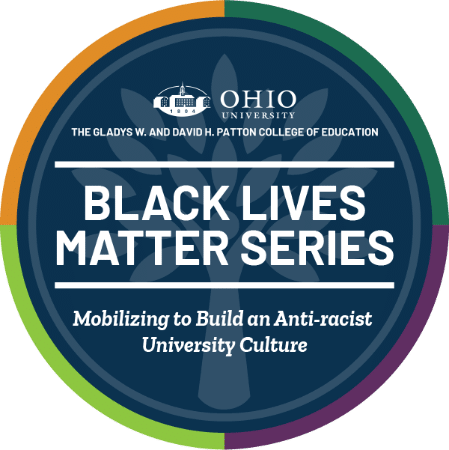 The Patton College of Education at Ohio University has initiated an educational series with the goal of enhancing knowledge about racist and anti-racist behaviors among citizens of the university and global communities. The Black Live Matters Munch & Learn Series features educators and industry leaders from diverse backgrounds who share the same passion for improving the culture that threatens U.S. communities and nation.
The Patton College of Education at Ohio University has initiated an educational series with the goal of enhancing knowledge about racist and anti-racist behaviors among citizens of the university and global communities. The Black Live Matters Munch & Learn Series features educators and industry leaders from diverse backgrounds who share the same passion for improving the culture that threatens U.S. communities and nation.
To date, three panel discussion have taken place:
Advocacy & Allyship: Every Day, Not Just When it is Trending
This session, which challenges participants to recognize and speak up against racism, features the following speakers:
- Brandi Baker, co-founder, Athens Parents for Racial Equality
- Tyrone Carr, director, Alumni Diversity Initiatives/Racial Equity Coalition of Athens
- Winsome Chunnu, director, Diversity and Inclusion
- Sarah Garlington, assistant professor, Department of Social Work/Showing Up for Racial Justice (SURJ)
29 Sep2020
By Katrina Norfleet
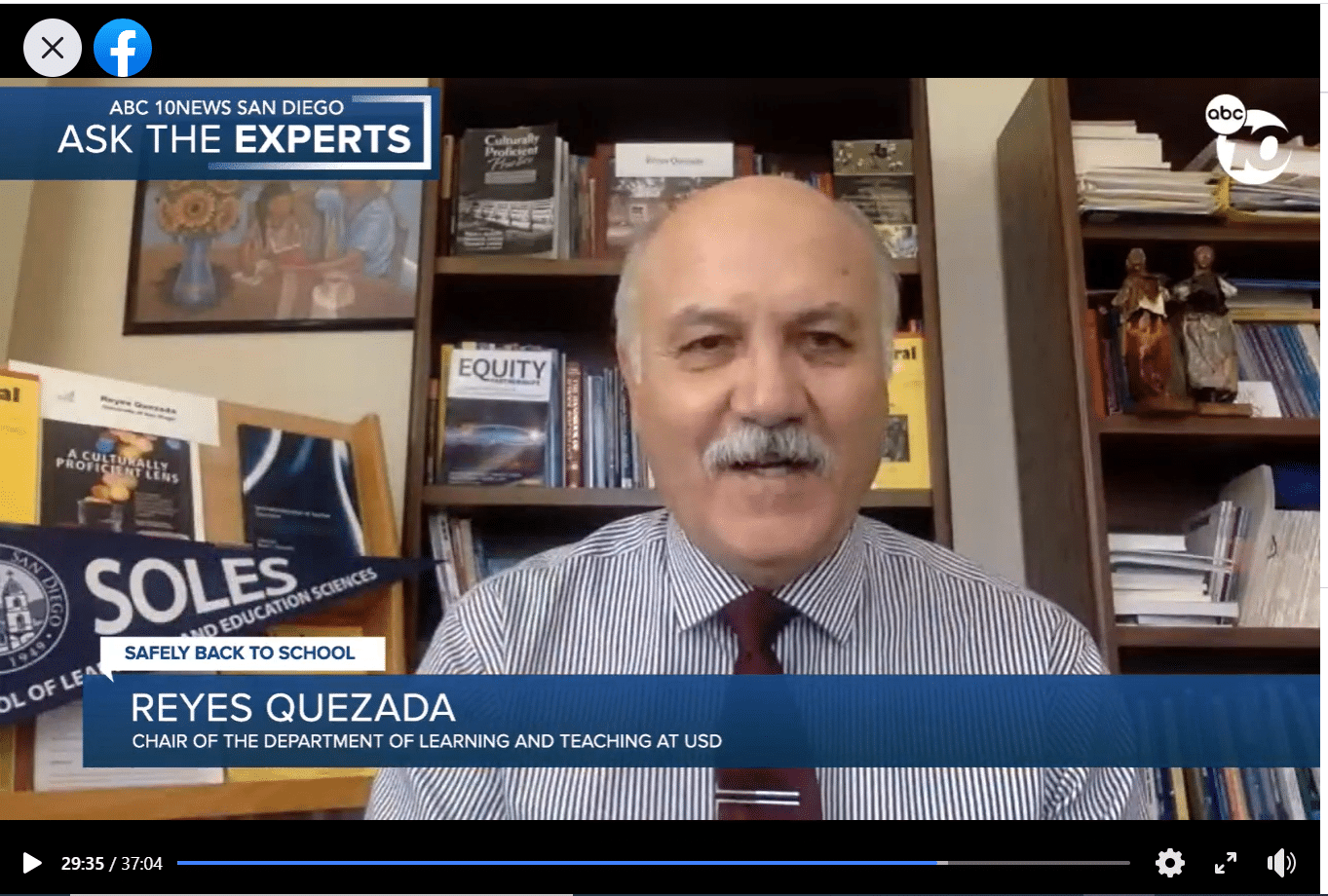
As many parents have questions about how to navigate the current school year with their children at home, ABC 10News anchor Lindsey Peña offered them an opportunity to talk with Reyes Quezada, chair of the Department of Learning and Teaching from University of San Diego USD, about their concerns. Reyes fields questions about distance learning, early childhood education, and bilingual education during the segment.
His advice includes tips that families can use to replicate what’s happening in schools to support their students at home. During the interactive session, Reyes also emphasizes the different ways teachers can communicate to meet the needs of the students during remote learning, including socio-emotional learning.
Watch the full interview on ABC10News Facebook page.
25 Sep2020
By Jerrica Thurman

Learn from top leaders in the field (and from your peers!) during AACTE’s virtual 2020 Leadership Academy Series, occurring in three sessions on October 14, October 27 and November 10. Engage in interactive discussions and strategic planning around issues facing your institutions during these challenging and unprecedented times.
In the first installment of the series on October 14, attendees will participate in a town hall style session, in which practices from three institutions will be shared. Entitled “It’s Time to Get Real: Deliberate Action in Diversity, Equity, and Inclusion,” participants will hear how these institutions have risen to the challenge and taken strides to make lasting change in their programs and policies. Each will contextualize the work they have undertaken; share successes, challenges, and lessons learned; and provide suggestions for how leaders in the ed prep community can engage in furthering this work.
23 Sep2020
By Weade James
The Ohio State University’s College of Education and Human Ecology will host a webinar series this fall on anti-racism in educational research for its alumni and the general public. This series, titled “Unapologetic Educational Research: Addressing Anti-Blackness, Racism and White Supremacy,” will examine how to conduct research on race that moves beyond the standardized approach to educational research. Participants will learn strategies to ensure that their research practices are equitable to inform findings that do not perpetuate the marginalization of people of color.
The series will launch on October 1, and feature sessions on a variety of topics, including engaging “diversity” in qualitative research, interrogating whiteness, and conducting research with indigenous methodologies. The webinar will feature guest alumni: D-L Stewart of Colorado State University, Rich Milner of Vanderbilt University, and April Peters-Hawkins of the University of Houston.
Learn more about the events and how to register.
21 Sep2020
By Katrina Norfleet
With the growing racial unrest in the country, higher education institutions are uniquely situated to promote anti-racism through education, create safe spaces for marginalized communities, engage in coalition building and ensure accountability in addressing bias, harassment and discrimination complaints. Colleges and universities across the country are responding to the current climate and the persistent issues related to diversity, equity and inclusion by appointing Chief Diversity Officers in record numbers. In an upcoming panel session hosted by Rowan University, Chief Diversity Officers at New Jersey higher education institutions will discuss promising gains in reimagining campuses that center the voices of diverse communities and leading institutional change that results in positive outcomes for students, faculty, and staff.
The session, “Dreams Will Not Be Deferred: A Conversation with Chief Diversity Officers on the Status Of Diversity, Equity And Inclusion In New Jersey Higher Education Institutions,” will take place Friday, September 25, 12:00 – 1:30 p.m. Join the conversation at GO.ROWAN.EDU/DEINJCDO.
21 Sep2020
By Monika Williams Shealey
 The horrific image of George Floyd taking his last breath is seared into our hearts and minds. Since that tragic event, we continue to bear witness to racial violence, police brutality, and incidents of discrimination that are played repeatedly in the news and via social media. The cumulative effect of these stressful reports can be traumatizing, and they are having a profound impact on our educators and students of color.
The horrific image of George Floyd taking his last breath is seared into our hearts and minds. Since that tragic event, we continue to bear witness to racial violence, police brutality, and incidents of discrimination that are played repeatedly in the news and via social media. The cumulative effect of these stressful reports can be traumatizing, and they are having a profound impact on our educators and students of color.
Racial battle fatigue (RBF), a term coined by critical race theorist William Smith, reflects the cumulative results of race-related stress. It emerges not only due to macroaggressions, but also from daily microaggressions, such as dismissive and demeaning comments directed at Black and Brown individuals. Basically, RBF is a wearing down based upon one’s racial identity. Some of the symptoms include depression, anger, frustration, and an overwhelming feeling of helplessness that a person of color is unable to contribute to positive change.
RBF is persistent and pervasive, and it manifests in different ways dependent upon who the person of color is and what he or she has experienced in the past. And while RBF impacts every aspect of our society, in higher education and K-12 environments, we predominantly see it’s imprint through hateful, divisive speech on social media, racial profiling in our society and our schools, and discipline policies that differ for students of color.
17 Sep2020
By Angeline Dean
This article is a personal reflection of the 2020 Washington Week Holmes Policy Institute by attendee Angeline Dean.
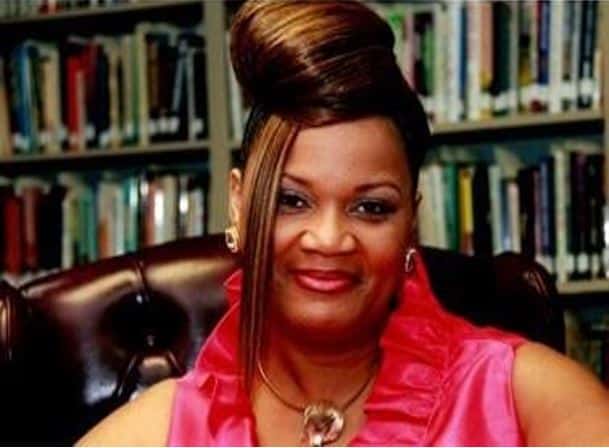
“People, Policy, Politics, and Processes” – Jane West
The knowledge of this framework and its relation to analysis and advocacy spearheaded the Holmes Advanced Policy Course. This framework, along with homework given by AACTE staffers Jane West and Weade James was not only the necessary grounding to an understanding that truly “all politics are local” but also ripe for Luis Maldonado to address the navigating of politics and policies. Immediately following, Lakeisha Steele, professional staffer and policy team leader for Rep. Bobby Scott (D-VA), chair of the House, Education & Labor Committee, “ripped the runway” with her honesty, passion, and commitment to social and transformational change! She reminded us that “we are our ancestors wildest dreams!” Therefore, we like our ancestors and so many who have transitioned this year, must be prepared to live in “good trouble” spaces and we must Persevere.
“If they don’t give you a seat at the table, bring a folding chair” – Shirley Chisolm.
As we segued into the rest of the Holmes Policy Institute, we were gifted with the Power statement of “Miss Unbought and Unbossed” herself, Shirley Chisolm. How befitting as this statement resonated as an overarching theme for such a time as this. AACTE Dean in Residence Leslie Fenwick challenged us to thwart the narratives that brand Black bodies in lies and deficits. She pushed us to exercise our Positionality as spaces of truth, resistance, power, and countered narratives that honor civil rights ancestors in the proper telling of history and data in education. With that, students posed questions that blended and asserted their politics, processes, power, and positionality as people such as: What exactly is the role of a dean in residence and how or does it relate to Holmes students and their needs? What systems are in place to protect (another p word) BIPOC students against whiteness and internalized racism in predominantly white institutions?
14 Sep2020
By Leslie T. Fenwick
The following article by AACTE Dean in Residence Leslie T. Fenwick is reprinted with permission from Diverse: Issues In Higher Education, 2020.
Dear Generation Z Students,
You are digital natives. So, this letter would better reach you by video, Instagram, Snapchat, maybe Twitter or a hashtag. But I need more letter characters and time than these platforms allow.
Please bear with me as you read. I warn you: First, my history recitation may seem unrelated but stick with me. Second, you might be tempted to read my analysis of White male power as a screed against all White males. It is not.
Did you learn about Pickett’s charge at Gettysburg in your history class? I’d like you to consider this battle as a metaphor for what you’re witnessing now with the murders of George Floyd, a truck driver and bar bouncer laid off due to the COVID pandemic; Breonna Taylor, an EMT and emergency room tech; Ahmaud Arbery, an avid jogger; and, the assault of Christian Cooper, a Harvard grad and bird watcher victimized by a White woman who used an old, violent trick – call the police and lie about being attacked by a Black man .
General George Pickett (known as the Lost Cause General of the Confederate South) fought a losing battle on July 3, 1863. Pickett and his all White male brigade were fighting to maintain an apartheid south built on the brutalizing, free labor of enslaved African men, women, and children. Pickett moved well above the Mason-Dixon Line and took about 12,000 Confederate soldiers straight into the heart of Union territory, Pennsylvania.
14 Sep2020
By Matthew Wales

For much of 2020, COVID-19 has forced AACTE and its members to “think outside the box” and reimagine programming. Just last week, AACTE conducted its inaugural virtual event, with educators coming together to receive advocacy training and learn effective techniques for effectively engaging with political leaders. And in keeping with innovating its professional development opportunities during the current pandemic, the association is pleased to announce the 2020 AACTE Leadership Academy Series.
In lieu of the traditional, in-person, four-day training, this years’ experience will offer a series of interactive sessions for attendees. The six-session experience will take place in two parts, with three sessions to be offered this fall, and the other three sessions to be offered during the 2021 Annual Meeting. Under the theme of “Leading During Difficult Times,” the three fall sessions will explore content in the following areas:
October 14 – Addressing Issues in Diversity, Equity, and Inclusion
October 27 – Collaborative Decision-Making During Crisis
November 10 – Re-Thinking Field Experience
14 Sep2020
By Jacqueline Rodriguez
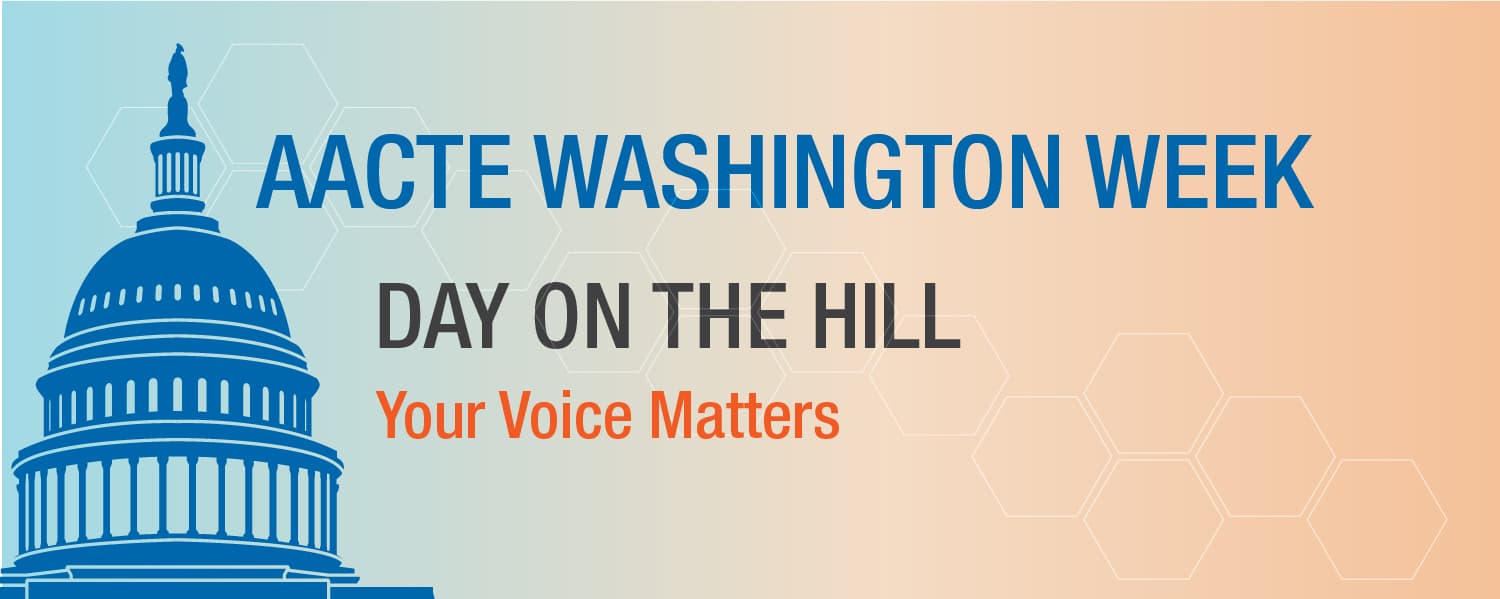 AACTE delivered its first virtual Day on the Hill advocacy event this past week. Over two days, attendees met with Congressional staff, AACTE Committee on Government Relations members, and panelists to develop their advocacy toolkit. This week, the attendees will host two days of Congressional visits with the senators and representatives from their states. AACTE state teams will be advocating for the AACTE 2020 Legislative Priorities, which describe the needs of educator preparation as we address twin pandemics: COVID-19 and racial injustice.
AACTE delivered its first virtual Day on the Hill advocacy event this past week. Over two days, attendees met with Congressional staff, AACTE Committee on Government Relations members, and panelists to develop their advocacy toolkit. This week, the attendees will host two days of Congressional visits with the senators and representatives from their states. AACTE state teams will be advocating for the AACTE 2020 Legislative Priorities, which describe the needs of educator preparation as we address twin pandemics: COVID-19 and racial injustice.
In preparation for their virtual Congressional Visits, attendees practiced how to communicate the priorities to legislative leaders, were briefed on current data related to educator shortages, the important to increase funding toward TEACH grants and Teacher Quality Partnership Grants within educator preparation programs, and the value of funding the Institute for Education Sciences, which is the principal research agency for education in the United States.
In addition, attendees received resources to support their learning. Each of these resources is available to all AACTE members!
11 Sep2020
By Marleen C. Pugach
This article is an excerpt that originally appeared in the AACTE Journal of Teacher Education (JTE) and is co-authored by Marleen C. Pugach, Ananya M. Matewos, and Joyce Gomez-Najarro. AACTE members have free access to the articles in the JTE online archives—log in with your AACTE profile to read the full article.
Preparing teachers for social justice has long been a driving force within teacher education, reflecting a commitment to educating students from multiple social identity groups who are marginalized and oppressed in schools. Given any particular decade, specific social identity markers may take center stage in this work—with new markers gaining visibility as previously neglected identity groups begin to receive vital, much needed attention.
Alongside social justice concerns for equity regarding race, class, ethnicity, gender, language, socioeconomic status and, more recently, sexual orientation and religion, stands the question of disability. As part of the overall vision for social justice, disability is generally viewed as a key social marker of identity. Yet students with disabilities continue to be marginalized and have persistently lower academic outcomes, such as graduation rates, compared to their mainstream peers (U.S. Department of Education, 2015). The connection between social justice and disability was amplified with the emergence of the disability studies in education (DSE) movement in the 1990s, which views disability as a socially constructed phenomenon, shifting its historical definition away from an immutable individual characteristic (Baglieri et al., 2011). Furthermore, the inclusion of students with disabilities itself has long been viewed as a social justice issue (Artiles et al., 2006).
04 Sep2020
By Debra Cano Ramos
This article originally appeared on the California State University, Fullerton new site and is reprinted with permission.
California State Fullerton’s College of Education faculty members are rising up to promote anti-racist teaching and learning.
In response to African Americans killed by police across the country and the disproportionate rate of COVID-19 infections among Black and Latinx communities, the Department of Secondary Education is offering a free webinar series this fall semester to address underlying racist policies and practices that exist in schools, said Natalie Tran, chair of secondary education and professor of educational leadership.
The webinars, open to teachers, teacher candidates, faculty, and community members, focus on dismantling racist policies, practices and ideas that influence schools, teachers and children, and most importantly, on taking actions that address anti-racist teaching.
04 Sep2020
By Hillary Gamblin
The following article is an excerpt of a transcribed podcast interview on the GoReact blog with AACTE board member Marquita Grenot-Scheyer, who serves as the assistant vice chancellor of Educator Preparation and Public School Programs for California State University (CSU). Grenot-Scheyer also sits on the board of directors for the California Commission on Teacher Credentialing. In this episode, she discusses her experience in special education as well as CSU’s exciting initiatives and research.
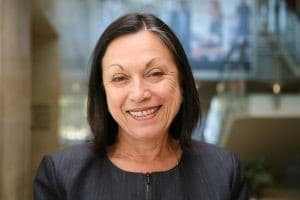 When did you realize that you wanted to dedicate your career to teaching students with disabilities?
When did you realize that you wanted to dedicate your career to teaching students with disabilities?
Grenot-Scheyer: I don’t think I realized it until I was a freshman in college, but my mother always reminded me that I talked about wanting to be a teacher from a very young age, and I just have no recollection of that. But my freshman year in college, at California State University, Los Angeles, I had an incredible field experience with some really complex and endearing young people. And that just set the path forward for what I wanted to do.
How Special Education Has Changed Over Time
So, as you mentioned, you began working with students with disabilities in the 1970s. What was it like to do special education at that time, and how has it changed since then?
Grenot-Scheyer: So when I began my career as a special educator, students with disabilities were predominantly served in isolated, segregated schools and classrooms. So that is, all students with disabilities in one facility. And so my first clinical experience was in a segregated school in a small community in Los Angeles, where students with the most challenging behavioral and physical and developmental abilities were all clustered together. And at the time, the feeling and the research said that was the best way to provide services to kids with disabilities. We now know, decades later, based upon research, based upon federal and state laws, that in fact, the best place to educate students with disabilities is in regular schools, alongside typically-developing peers. So the service delivery models have changed dramatically in some schools and in some communities, but in other schools and communities, students with disabilities are still being served in segregated settings. But we now know that’s not the best way to do it.








 The Patton College of Education at Ohio University has initiated an educational series with the goal of enhancing knowledge about racist and anti-racist behaviors among citizens of the university and global communities. The Black Live Matters Munch & Learn Series features educators and industry leaders from diverse backgrounds who share the same passion for improving the culture that threatens U.S. communities and nation.
The Patton College of Education at Ohio University has initiated an educational series with the goal of enhancing knowledge about racist and anti-racist behaviors among citizens of the university and global communities. The Black Live Matters Munch & Learn Series features educators and industry leaders from diverse backgrounds who share the same passion for improving the culture that threatens U.S. communities and nation.

 The horrific image of George Floyd taking his last breath is seared into our hearts and minds. Since that tragic event, we continue to bear witness to racial violence, police brutality, and incidents of discrimination that are played repeatedly in the news and via social media. The cumulative effect of these stressful reports can be traumatizing, and they are having a profound impact on our educators and students of color.
The horrific image of George Floyd taking his last breath is seared into our hearts and minds. Since that tragic event, we continue to bear witness to racial violence, police brutality, and incidents of discrimination that are played repeatedly in the news and via social media. The cumulative effect of these stressful reports can be traumatizing, and they are having a profound impact on our educators and students of color.

 AACTE delivered its first virtual Day on the Hill advocacy event this past week. Over two days, attendees met with Congressional staff, AACTE Committee on Government Relations members, and panelists to develop their advocacy toolkit. This week, the attendees will host two days of Congressional visits with the senators and representatives from their states. AACTE state teams will be advocating for the
AACTE delivered its first virtual Day on the Hill advocacy event this past week. Over two days, attendees met with Congressional staff, AACTE Committee on Government Relations members, and panelists to develop their advocacy toolkit. This week, the attendees will host two days of Congressional visits with the senators and representatives from their states. AACTE state teams will be advocating for the  When did you realize that you wanted to dedicate your career to teaching students with disabilities?
When did you realize that you wanted to dedicate your career to teaching students with disabilities?